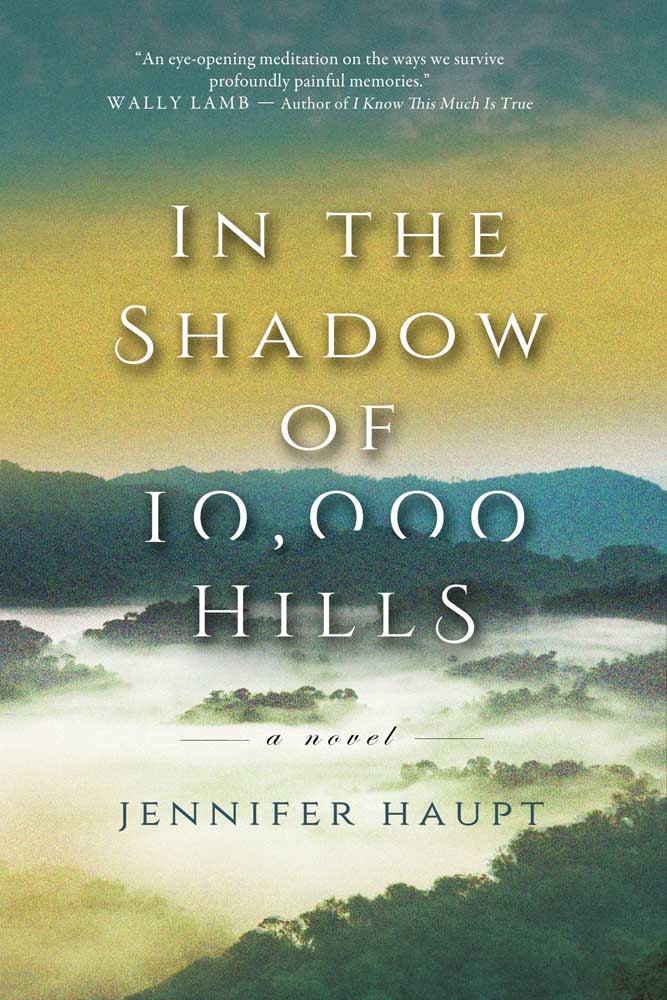Family drama set in shadow of Rwandan genocide
Published 12:00 am Thursday, March 29, 2018

- "In the Shadow of 10,000 Hills," by Jennifer Haupt is a family drama set against the backdrop of the 1994 genocide in the East African nation of Rwanda. (Submitted cover art)
When former journalist Jennifer Haupt decided to visit Rwanda for a month in 2006, she wasn’t sure what might come of the trip.
“I honestly didn’t know why I was going there really,” she said. “I was kind of having a midlife crisis and not even thinking about writing a novel at that point. I’d written a lot as a journalist about women who change their life and change the world and was looking for something to do with my life.”
Haupt’s experiences in Rwanda and the people she met there were the inspiration for her debut novel, “In the Shadow of 10,000 Hills,” which will be released Sunday. The author will discuss the book and her decade-long journey to write it during events in Redmond and Sunriver. Advance copies of the book will be available for purchase at the events.
“In the Shadow of 10,000 Hills” is a family saga about the struggle for reconciliation and forgiveness. It spans 40 years and two continents, from the civil rights unrest in Atlanta during the 1960s to the East African nation of Rwanda, several years after the 1994 ethnic genocide that killed an estimated 800,000 people in just 100 days.
“It’s not a book about genocide,” Haupt explained. “It’s about finding love again when you think you’ve lost it and about building families in interesting ways.”
When the author first arrived in Rwanda, a dozen years had passed since the horrific events of 1994. She spent about a week in the capital city, Kigali, reporting on three different stories that all fell through for different reasons, leaving her at loose ends. So she hired a guide who took her into the hills and visited more than a dozen different memorial sites.
Unlike the Holocaust museums Haupt had visited in Europe, most of the genocide memorials she saw in Rwanda were just small churches or former village schools tended by a single guide — usually a local woman whose family had been killed during the conflict. Often, there were still bloodstains on the walls and bullet holes in the roof.
Haupt, who is Jewish and lost ancestors in the Holocaust, felt an immediate affinity for the people she met. She also discovered some unrealized grief resulting from the childhood death of her older sister, which her family never discussed.
Having maintained a professional distance between herself and the subjects of her reporting in the past, Haupt was surprised at the emotional and personal connection she felt to the Rwandan survivors.
“I realized these stories weren’t being told,” said Haupt. “I wanted to tell them in a way Westerners could understand, so that’s why the main character is American. People can go along on this ride with Rachel and see through her eyes.”
Listening to the accounts of women who had witnessed and lived through gruesome atrocities and then had to try to put their lives back together, Haupt came to a realization. Forgiving the murderers of their families just wasn’t possible in many cases. Instead, these people had searched for the grace to let go of the past in order to find peace for themselves.
The Rwandan term, “amahoro” translates to “peace.” But in the wake of the genocide, it has become a more loaded greeting that implies sorrow for the past and hope for the future. In her novel, Haupt’s four main characters must each find their own path to amahoro after suffering personal tragedies due to racial, social and cultural divides in America and Rwanda.
The process of writing “In the Shadow of 10,000 Hills” was a long and winding one for Haupt. It took time for the characters to evolve and fully reveal themselves to her. As she worked on the manuscript, Haupt did just enough freelance work to pay her bills, giving up a lot of her social life along the way, but the sweeping narrative proved difficult to shape. It took rejections by around 35 editors, a three-year hiatus to work on another manuscript (yet to be published) and a total rewrite before “10,000 Hills” was finally completed and a publishing deal was secured.
“I’m hoping this book opens up conversations for people about how you forgive the unforgivable, how you find common ground and how you put the past behind you and find your voice,” Haupt said.








